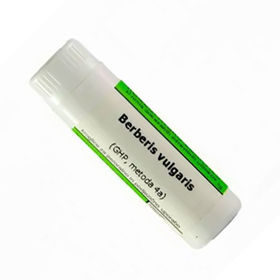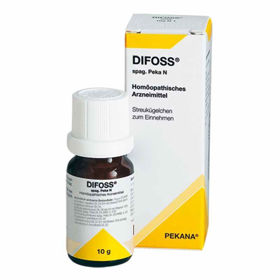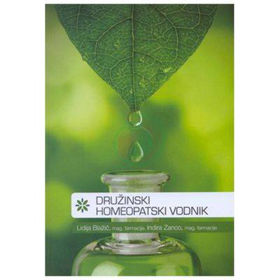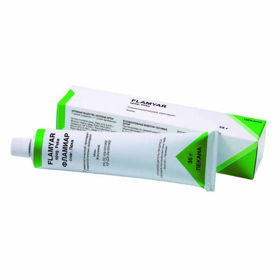Homeopathy is a type of treatment based on highly diluted substances, which, when taken, experts claim can enable the ability to self-heal.
Homeopathy: General | Course of treatment | Preparation of homeopathic remedies | Condition Treatment | Risks, interactions and security | Questions and Answers | Sources/references
Homeopathy as a therapeutic system was particularly popular in the 19th century and was based on the stated principle that "like cures like," similia similibus curantur. Based on the law of similarities, this therapeutic system was introduced in 1796 by the German physician Samuel Hahnemann.
He claimed that a hefty dose of quinine, often used to treat malaria successfully, produced effects in him similar to the symptoms of malaria patients. Thus, he concluded that all diseases are best treated with drugs that produce effects similar to the symptoms of these diseases in healthy people.
Image: The image shows plants and plant extracts.

To prove this, he also started experimenting with various medicines. Hahnemann believed that large doses of drugs aggravated the disease and that the effectiveness of drugs was therefore increased by dilution. That is why most homeopaths believed in taking small doses of the medicine.
Homeopathic medicines are prepared in a way where the substance taken (usually a plant, animal material, or chemical) is diluted several times in water or alcohol, often so that almost none of the original substance remains in the solution. These highly diluted preparations can be found on pharmacy shelves in several forms, including tablets, liquids, and creams.
Homeopathy was welcome by many patients and some doctors when it was necessary to oppose the complex therapies of the time. In the 20th century, however, homeopathy became less popular and was criticized for focusing on symptoms rather than the root causes of disease.
Video content: what is homeopathy?
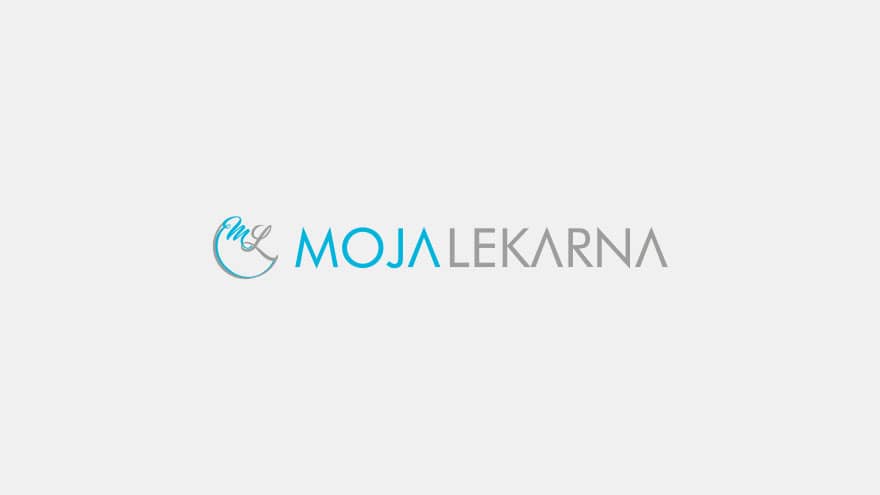
Homeopathy still has some adherents, and many national and international societies, including the International Homeopathic Medical League based in Köthno, Germany.
How does treatment with homeopathic medicines work
Homeopaths strive to treat the whole person, considering personality, lifestyle, hereditary factors, and disease history. Homeopathy is usually practiced privately, and homeopathic medicines are available in pharmacies.
When you visit a homeopath for the first time, you will usually be asked about the following:
- any special medical conditions
- your general well-being
- your emotional state
- your lifestyle
- your diet
Based on this, the homeopath will decide on the course of treatment. This is most often in homeopathic medicines in tablet, capsule, or tincture form. In addition, the homeopath may recommend that you visit one or more follow-up examinations to assess the effects of the medicine on your health.
Homeopaths say that sometimes symptoms may worsen temporarily before they improve. This worsening of symptoms may be part of homeopathic treatment. However, you should always report reactions to your homeopath and doctor. Your homeopath can refer you to a doctor or other healthcare professional if necessary.
Image: The image shows homeopathic beads.

If you decide to use homeopathy, you should research its effectiveness. Always seek the services of a registered homeopath and inform your doctor if you plan to start any new treatment, including homeopathy.
Although homeopathic remedies are not considered harmful, homeopathy can be dangerous if a person relies on it as the only treatment and uses it as a substitute for conventional treatment of severe illnesses and medical conditions.
Medical science still needs to prove the effectiveness of homeopathy, and the effectiveness of homeopathic preparations in medicine is also considered controversial in a certain respect. For example, homeopathic medicines are not based on specific antibodies or germ cell formation and are not an acceptable alternative to conventional vaccines.
To make sure you are safe:
- tell your doctor if you plan to start homeopathic treatment
- never stop taking regular medications without your doctor's knowledge and approval
- tell your homeopath what conventional medicines you are taking
How homeopathic medicines are prepared
The preparation of homeopathic remedies consists of repeated dilution (with water or alcohol) and shaking, called "potentization." After the 12th dilution, there is no longer any noticeable chemical trace of the original substance in the medicine. Still, homeopaths believe that the preparation retains the properties of the original substance.
A homeopathic medicine's usual strength or power is marked with 200 C. This means that one part of the tincture/extract of the ingredient is mixed with 99 parts of water or alcohol. This process is repeated 200 times. This is a high degree of dilution, and nothing should be left of the original plant material or mineral in the final tincture.
Video content: preparation of homeopathic medicine.

For example, poison ivy causes a red, itchy rash in its undiluted form. A homeopath would thus take poison ivy and dilute it by going through the potentization process several times. The homeopath would then use this treatment to treat the rash.
Which conditions can be treated with the help of homeopathy?
Preliminary evidence suggests that homeopathy may help treat diarrhea in children, otitis media (ear infections), asthma, fibromyalgia, chronic fatigue syndrome, menopausal symptoms (such as hot flashes), pain, allergies, upper respiratory infections, sore muscles, and colds and flu.
Homeopaths use their therapies to treat a wide variety of conditions, such as:
- allergies
- bruises
- chronic fatigue syndrome
- irritable bowel syndrome
- premenstrual syndrome
- rheumatoid arthritis
- cold
- cough
- depression
- headaches
- migraines
- nausea
- abrasions
- toothache
Image: symbolic image shows plants for creating homeopathic remedies.

Homeopathy has not proven to be any better in some clinical trials than a placebo. However other clinical studies have shown the benefits of homeopathy, but more research is needed to say with certainty that homeopathy is genuinely compelling.
Safety, interactions, and Side Effects
Homeopathic medicines are prepared according to the guidelines of international pharmacopeia and are considered safe and without serious side effects. Homeopathic medicines are well tolerated, although users have reported allergic reactions like rashes. Some people's symptoms worsen even at the start of treatment. Interactions with other medicines are not well studied, although they are unlikely given the high dilution of homeopathic medicines.
Image: The image shows homeopathic remedies.

Homeopathy cannot poison or cause toxic or dangerous side effects, unlike conventional medicines. This is primarily because homeopathy is an "energetic medicine" that acts on the subtle energy of the human body and thus promotes healing. In addition, since no chemicals are included in the medicine, toxic side effects and poisoning are avoided.
The difference between the chemical side effects of conventional medicines and the energy side effects of homeopathic medicines is primarily that the energy effects are usually less intense, and they do not harm, poison, or cause addiction. They only indicate that the drug was given excessively, too often, or in an inappropriate strength. When you stop taking the drug, the side effects disappear quickly.
CfThe staff homeopaths not only prescribe the right medicine but also adjust the strength, dosage, and frequency of taking this medicine to suit the person's sensitivity so that there are no side effects.
Short-term "deterioration" will only be noticeable when:
- the medicine closely matches the person's symptoms, but the dose is too frequent or too strong
- the drug does not precisely match the person's symptoms but is close enough to trigger a response
Do not use homeopathic medicines to treat life-threatening conditions such as asthma, cancer, heart disease, or emergencies. You should also avoid using them instead of vaccines. Some homeopathic products called "nosodes" are marketed as an alternative to vaccines, but no research proves their effectiveness.
Questions and answers
Is homeopathy a clinically proven treatment?
The efficacy of homeopathy has been extensively studied. Even though the assumptions of homeopathy are not supported by scientific evidence, homeopathy exists and is even supported by the health systems of many countries. Homeopathy is based on two unconventional theories:
- "like cures like" – the idea that a disease can be cured by a substance that causes similar symptoms in healthy people
- "law of minimum dose" - the idea that the lower the dose of a drug, the greater its effectiveness[1]
What problems is homeopathy used to treat?
Homeopaths use their therapies to treat a wide variety of conditions, such as:
- allergies
- bruises
- chronic fatigue syndrome
- irritable bowel syndrome
- premenstrual syndrome
- rheumatoid arthritis
- cold
- cough
- depression
- headaches
- migraines
- nausea
- abrasions
- toothache[2]
Image: depression can also be relieved with homeopathic medicines.

Are homeopathic medicines dangerous, and do they cause side effects?
While homeopathic remedies are not considered harmful, homeopathy can be considered dangerous if a person relies on it as a treatment and uses homeopathic remedies as a substitute for conventional treatment of severe illnesses or infections.
Homeopathic medicines are prepared according to the guidelines of international pharmacopeia and are considered safe and without serious side effects. Homeopathic medicines are well tolerated, although allergic reactions such as rashes have been reported. Some people's symptoms worsen significantly at the beginning of treatment.
Homeopathy cannot poison or cause toxic or dangerous side effects, unlike chemical-based medicines. This is mainly because homeopathy is an "energetic medicine" that works on the subtle energy of the human body to promote healing. Since no chemicals are involved, taking homeopathic medicines avoids toxic side effects and poisoning[3].
Sources and references
1. Homeopathy - where is the science? - https://www.ncbi.nlm.nih.gov
2. Homeopathy - https://www.nhsinform.scot
3. Side Effects of Homeopathy - http://medlilly.com







